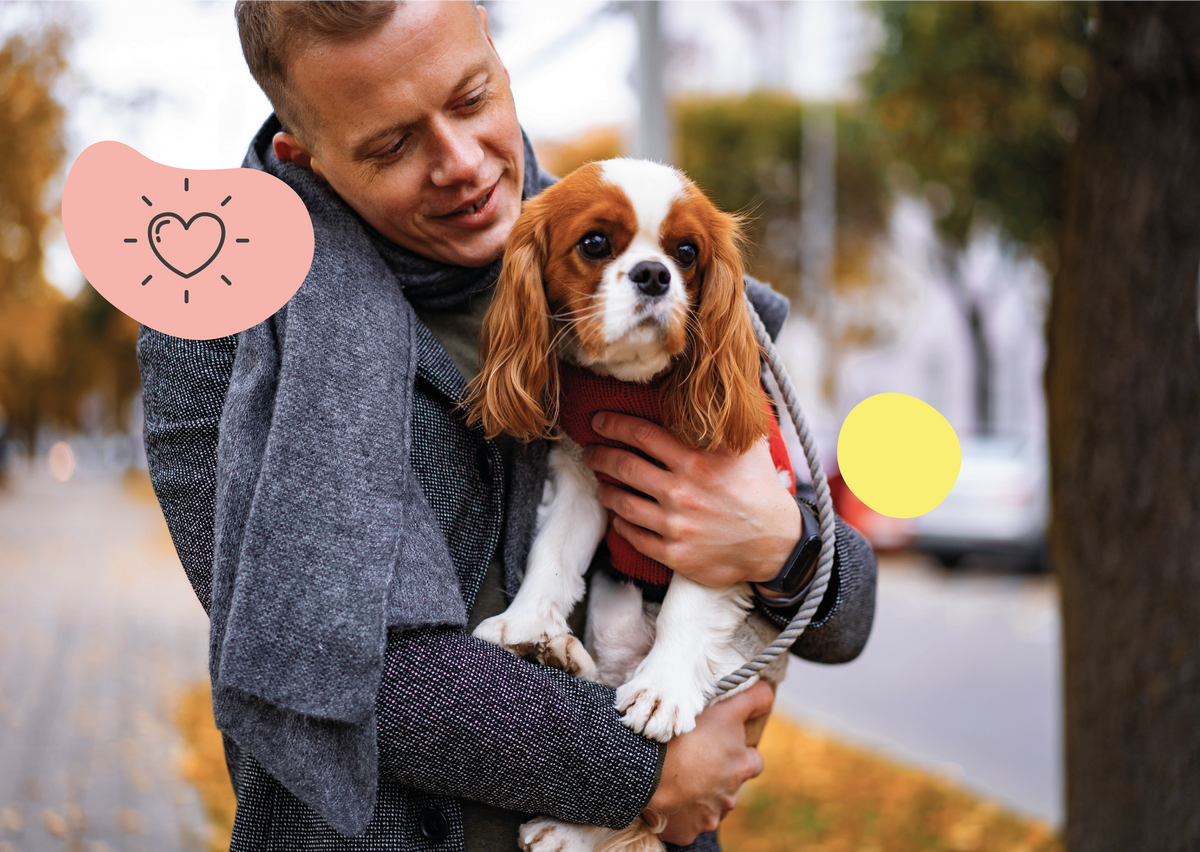How to take care of your dog's coat?

Your dog's coat is not only beautiful, it also has other functions that are very useful for your pet: immune barrier, waterproofing, protection against shocks and UV rays, or thermal insulation. Your dog's coat is necessary for various reasons. That's why it's essential to maintain it properly and regularly. Brushing, washing and feeding, we explain everything about these 3 essential criteria for the health of your dog's coat!
The importance of brushing for your dog's coat
Why brush your dog?
Brushing your dog's coat regularly, especially during the autumn and spring moulting periods, helps to remove dead hair and any dirt that may have crept in. Regular brushing helps to aerate your dog's skin - protecting it from possible dermatological problems - and helps new hair to grow back more easily.
Simply use a wire brush, to brush your dog's body in the direction of the hair: on the belly and chest, on the legs, not forgetting the tail and head. Don't hesitate to use a comb to remove persistent knots, especially for long-haired dogs.
How often should I brush my dog?
It is strongly recommended that you brush your dog at least once a day to properly aerate his coat and prevent knots from forming, especially if he has a long coat. Brushing also activates the blood circulation, which is good for your pet's health.
Which brushes should you use to groom your dog's coat?
Generally, two different brushes should be used to maintain your four-legged friend's coat. To remove dead hair, dust and any dirt, it is advisable to start with a wire brush, brushing in the direction of the hair. Once this stage is complete, complete with a second brushing, this time with a softer brush, to give your dog's coat volume and the effect of a massage, which is beneficial to his well-being.
The right wash for your dog's coat
How often should I wash my dog?
The frequency with which dogs are washed will vary according to their living environment and breed. Generally, short and medium-haired dogs are bathed every 2 to 3 months. Long-haired dogs may benefit from slightly more frequent washing, but it is still very important, regardless of the breed of dog, not to wash too often. Your pet's skin secretes sebum which helps to protect it and also serves as a scent marker, so that dogs can recognise each other. It is therefore important to wash your dog's coat as often as possible, both for his health and for his sociability!
What products should you use to wash your dog?
There are shampoos dedicated to dogs: they can be detangling, anti-itching, or more specific in case of skin problems. It is important to ask your vet for advice so that he can prescribe a shampoo suited to your dog's coat. Just remember that it is strictly inadvisable to use a human shampoo on dogs: your pet's skin is more sensitive, and it needs a product that lathers much less to avoid damaging the water-repellent film that covers its hair and protects it from external aggression.
The right diet for a beautiful coat
A beautiful coat is not only achieved from the outside: in addition to brushing and washing, a good diet is also necessary. A dull coat, abnormal shedding or scalp problems are often linked to nutritional deficiencies. To stay healthy and to have a shiny coat, a dog's diet must be rich in sulphur-containing amino acids, vitamins and essential fatty acids, particularly omega 3 and 6.
Discover our salmon oil for dogs
It is therefore important to opt for quality products made from top-quality ingredients, whether they are dog food or dog treats. There are now snacks available that are specially designed to keep dogs' coats healthy. For example, Marly & Dan's "Skin & Coat" chew bars contain 100% natural ingredients, including salmon, which is rich in omega 3, proteins and nutrients, to specifically help maintain your dog's coat.
As you can see, for your pet to have a beautiful coat, external care (brushing and washing) and internal care (feeding) are essential criteria to take into account! If, despite your care and a healthy, balanced diet, your dog continues to have coat problems, do not hesitate to consult your vet directly.




